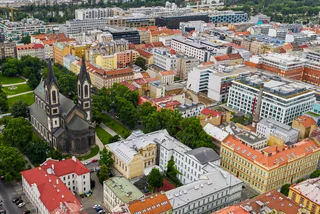Real wages in the Czech Republic fell for the third quarter in a row. Even though wages rose, they did not keep pace with inflation. Despite the lagging pay, the country’s unemployment remains the lowest in the European Union.
In the second quarter of 2022, the average gross monthly nominal wage for a full-time employee was CZK 40,086, which is CZK 1,696 more than at the same time in 2021. At the same time, consumer prices increased by 15.8 percent, according to the Czech Statistical Office (ČSÚ).
“In the second quarter of 2022, the average gross monthly nominal wage per full-time equivalent employee increased by 4.4 percent, year-on-year; however, after taking into account the inflation, it decreased in real terms already for the third successive time, this time by 9.8 percent,” Jitka Erhartová, head of the ČSÚ's labor statistics unit, said.
Compared to the previous quarter, the seasonally adjusted average wage increased by 1.3 percent in the second quarter of 2022.
Prague had the highest average gross monthly nominal wage in the second quarter at CZK 49,221, which was 5.7 percent higher than last year. The lowest was in the Karlovy Vary region at CZK 34,725, an increase of 3.3 percent.
According to the breakdown of economic activities, the highest increase in the average wage compared to the second quarter of 2021 was recorded in accommodation and food service activities, up 11.3 percent, information and communication, up 11.0 percent, and administrative and support service activities, up 10.3 percent. A decrease of 20.7 percent occurred in human health and social work activities. The decrease was caused by bonuses paid last year.
The highest average wage was in the information and technology sector at CZK 69,845. It was followed closely by the financial sector at CZK 69,721, an increase of 7.7 percent year on year. There is a gap until third place, which is the electric, steam, and air conditioning supply, at CZK 54,942, up by 6.2 percent. The lowest wage was in accommodation and food service, at CZK 23, 586.
PARTNER ARTICLE
The median wage reached CZK 34,111, an increase of 5.3 percent compared to the corresponding period of the previous year. There is still a substantial gender gap. The median wage for men reached CZK 36,925 and for women it was CZK 31,170. Some 80 percent of employees earned wages between CZK 17,854 and CZK 65,383.
According to seasonally adjusted data, the unemployment rate in the European Union in July fell by a tenth of a percentage point to 6 percent compared to June. The Czech Republic has the fewest people without work EU, with unemployment decreasing by a tenth of a point compared to June to reach 2.3 percent.
What is the average gross monthly wage? The share of wage funds including bonuses, overtime, and other compensation per employee per month represents the average gross monthly wage. About two-thirds of employees have a wage below the national average. The median wage represents the value of an employee's wage in the middle of the wage distribution. It means that one-half of the wages are lower and the second-half of the wages are higher than the median wage.
Eurostat uses ČSÚ data, which differs from data from the Czech Labor Office. The Labor Office said unemployment in the Czech Republic rose by two-tenths of a percentage point to 3.3 percent in July. The ČSÚ bases its unemployment rate on the labor force sample survey, and the Labor Office on the number of registered job applicants.












 Reading time: 2 minutes
Reading time: 2 minutes 


























